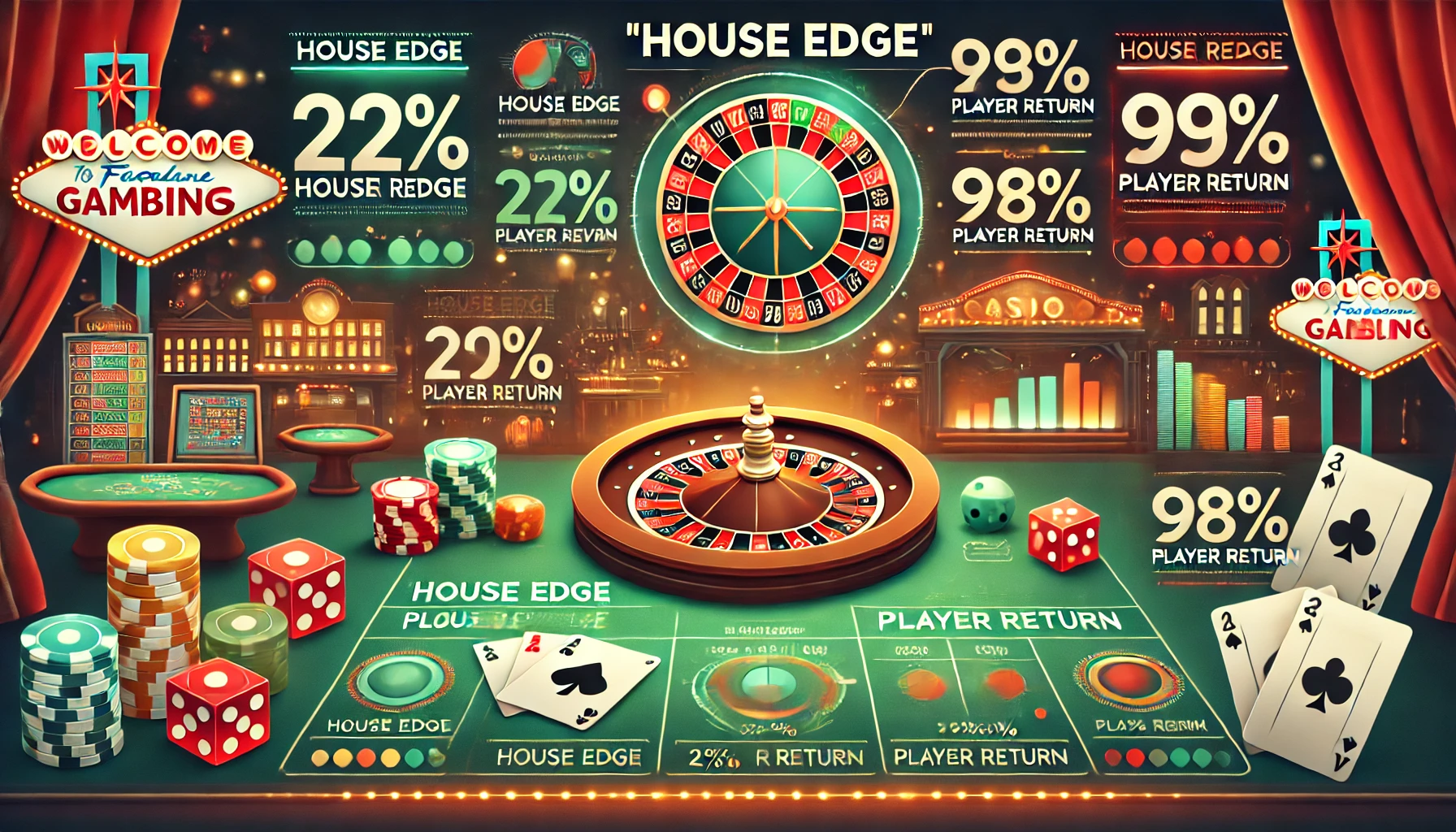
The house edge is one of the most important terms in the gambling and casino world. It is the mathematical edge the casino holds over players in any given game. This inherent advantage is such that, over time, the casino is at least profitable, and provides the players the incentive to win in the short run. Identifying the house edge can be used to inform players which games they want to and how they can best manage their bankroll.
In the case of house edge, it is given as a percentage of the player's original bet. This refers to the mean money of money that a casino assumes they will still hold from every wager in the long term. For instance, the casino will, on average, keep $5 for each of every $100 wagering, if the house edge is 5%.
That number does not tell you that you will necessarily lose $5 for every dollar you put at risk in a single session. On the contrary, it is an estimated average that has been computed for many thousands up to millions of bets. In the short term, players may experience winning or losing streaks, but over time, the house edge guarantees profitability for the casino.
Gambling houses determine the house edge by probability and statistical technique, taking into account the rules of any given game and winning for various potential outcomes. Here’s a simplified explanation of how it works:
All gambling games have unique conditions that affect the chance of various results. For example:
In roulette, the casino edge is fixed concerning the number of pockets on the wheel. The European roulette wheel has 37 pockets (1–36 and zero), whereas the American roulette wheel has 38 pockets (1–36, and zero and double zero). There is an added pocket in the American wheel that contributes to the house edge.
In blackjack, the house edge is influenced by parameters like what is paid out when a blackjack is made, how to hit or stand when the dealer is given those actions, and whether can players double down or split pairs.
The house edge also factors in the difference between the true odds of an event occurring and the payout offered by the casino. For instance, in a roulette game:
1. The difference between these odds creates the house edge.
Long-Term Averages
Casino's future winnings from a game of this type can be estimated by running simulations or by processing vast amounts of real-world gameplay data, which can be used to predict how much money will be won/lost over the long term. This figure is then expressed as a percentage.
Below is an overview of the house edge in some of the most popular casino games:.
Blackjack: 0.5% to 2%, depending on player strategy and specific rules.
Roulette: 2.7% for European roulette, and 5.26% for American roulette.
Slots: 2% to 10%, varying by game and casino.
Craps: 1.4% for the pass/don't pass bet, but possibly greater, for other wagers.
For the players, knowing the house edge is of great consequence for expectations management and game selection. Games of low house edge like Orion Stars online can be favorable for the player with a chance of winning in the long run, even assuming the player employs optimal strategies. On the other hand, games with a high house edge, e.g., certain slot machines, are more likely to generate recurring losses in the long run.
The house edge is how casinos can be profitable while providing leisure activities and large returns. For players, knowing the house edge is the first step in playing smarter, whether you're enjoying a spin on the roulette wheel, a hand of blackjack, or a session on the Orion stars slots. Such an understanding enables us to make better choices and have much more enjoyable games.